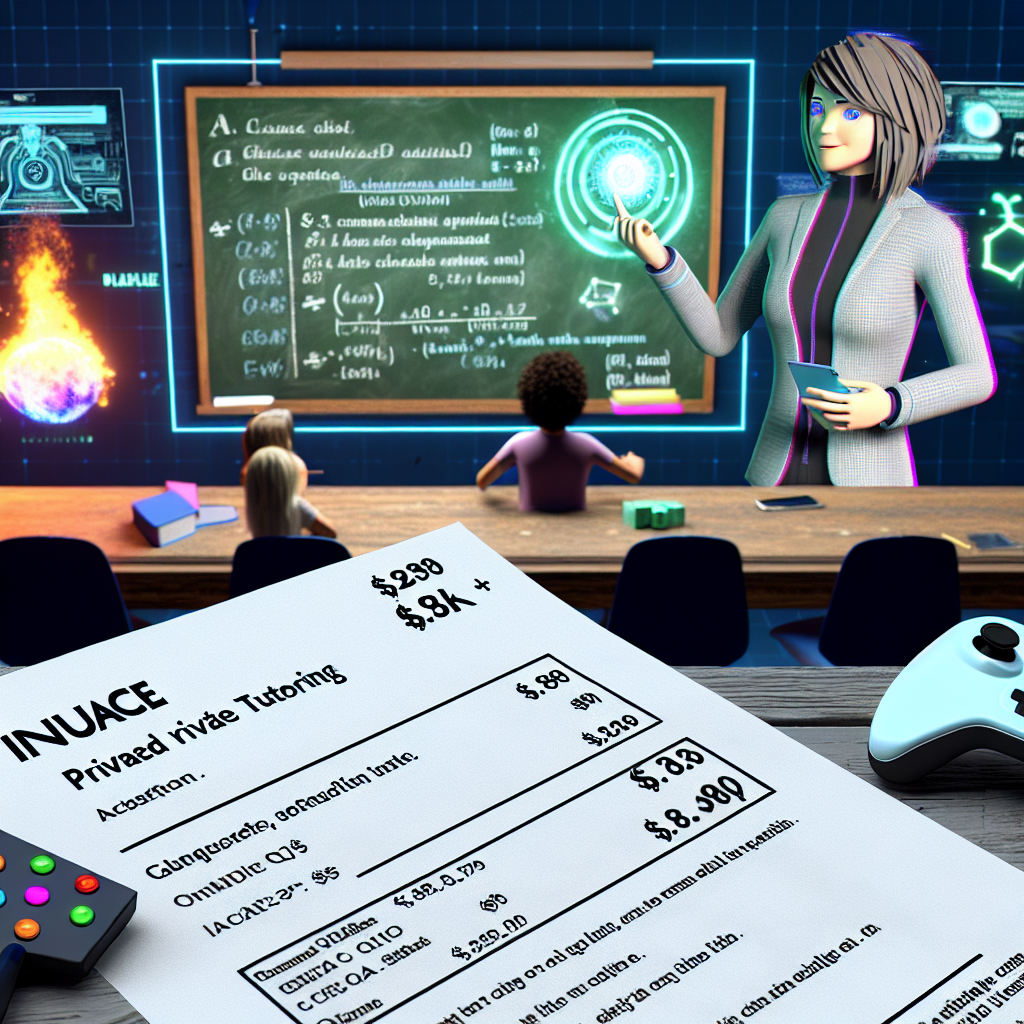AI-Powered Private Tutoring Platforms: Worth the $50K+ Investment?
Introduction
In the evolving landscape of elite education, affluent families seek innovative ways to give their children a competitive edge. Traditional private tutoring has long been a staple, but the rise of artificial intelligence (AI) is disrupting this industry. AI-powered private tutoring platforms are entering the high-end education market, promising hyper-customized learning experiences at a cost of over $50,000 per year.
These platforms offer one-on-one AI-driven instruction, real-time adaptive learning pathways, and predictive analytics to anticipate knowledge gaps. Parents must weigh the potential benefits against the substantial financial investment. The luxury education space has already embraced technological advancements, and AI-driven tutoring platforms aim to refine elite education further.
AI in Education: Does Research Support the Hype?
Studies suggest that AI-driven personalized learning models can outperform traditional methods. A McKinsey & Company report found that AI-driven tutoring can accelerate learning outcomes by up to 30% through adaptive technology. Additionally, a study in the Journal of Educational Psychology showed that students using AI-assisted tutoring demonstrated better retention and understanding of complex concepts.
Hyper-Personalized Learning: The AI Advantage
One of the key selling points of AI-powered tutoring platforms is their ability to deliver hyper-personalized and adaptive learning experiences. AI programs analyze student behavior in real-time, adjusting the difficulty and identifying weak areas that require additional focus. Some advanced platforms even integrate biometric feedback to refine their teaching approach, ensuring the child remains engaged and avoids frustration or boredom.
AI vs. Human Tutors: Can Machines Replace Mentors?
While AI tutoring offers impressive data analytics, it cannot yet replicate intrinsic human qualities such as emotional intelligence, mentorship, and moral guidance. Social learning theorists emphasize the importance of interpersonal relationships in effective education. However, some high-end platforms now combine AI-driven lesson plans with real-time human instructor engagement, attempting to merge the best of both worlds.
Ethical & Psychological Concerns About AI Tutors
Beyond academic performance, AI tutors raise questions about developmental well-being. Critics argue that excessive AI-based learning could diminish a child’s ability to think critically and independently. Psychologists emphasize the importance of human interaction in developing social and cognitive skills, warning against hyper-reliance on digital learning tools. Additionally, issues regarding data privacy cannot be ignored, as AI-based tutoring systems collect and process enormous amounts of personal data.
Final Verdict: Is a $50K AI Tutor Worth the Investment?
AI-powered tutoring platforms represent a major innovation in elite education, but their limitations must be weighed carefully. While the technology offers distinct advantages, the question is whether it truly serves the best long-term academic and personal interests of the child. AI-powered tutoring can supplement and enhance education, but it may be best viewed as a complement rather than a complete replacement for human mentorship and guidance.
**Summary:**
AI-powered private tutoring platforms offer a level of personalization and efficiency that human tutors may struggle to match, with price tags upwards of $50,000 per year. While research suggests these AI-driven models can outperform traditional methods, concerns remain about the importance of human interaction, the development of critical thinking skills, and data privacy issues. Ultimately, AI tutoring may be best viewed as a complement to human mentorship rather than a complete replacement.
**References:**
1. [McKinsey & Company, 2020](https://www.mckinsey.com/industries/education/our-insights/how-artificial-intelligence-is-shaping-the-future-of-education)
2. [Journal of Educational Psychology, 2022](https://www.apa.org/pubs/journals/edu/)
3. [Harvard Graduate School of Education, 2021](https://www.gse.harvard.edu/news/ed/21/12/how-ai-changing-classrooms)
4. [American Psychological Association, 2020](https://www.apa.org/news/press/releases/2020/06/social-learning-theory)
5. [Stanford University, 2023](https://ed.stanford.edu/news/impact-ai-education)
6. [MIT Technology Review, 2022](https://www.technologyreview.com/2022/05/18/1052864/the-risks-of-ai-in-education-data-privacy/)

Dominic E. is a passionate filmmaker navigating the exciting intersection of art and science. By day, he delves into the complexities of the human body as a full-time medical writer, meticulously translating intricate medical concepts into accessible and engaging narratives. By night, he explores the boundless realm of cinematic storytelling, crafting narratives that evoke emotion and challenge perspectives. Film Student and Full-time Medical Writer for ContentVendor.com



